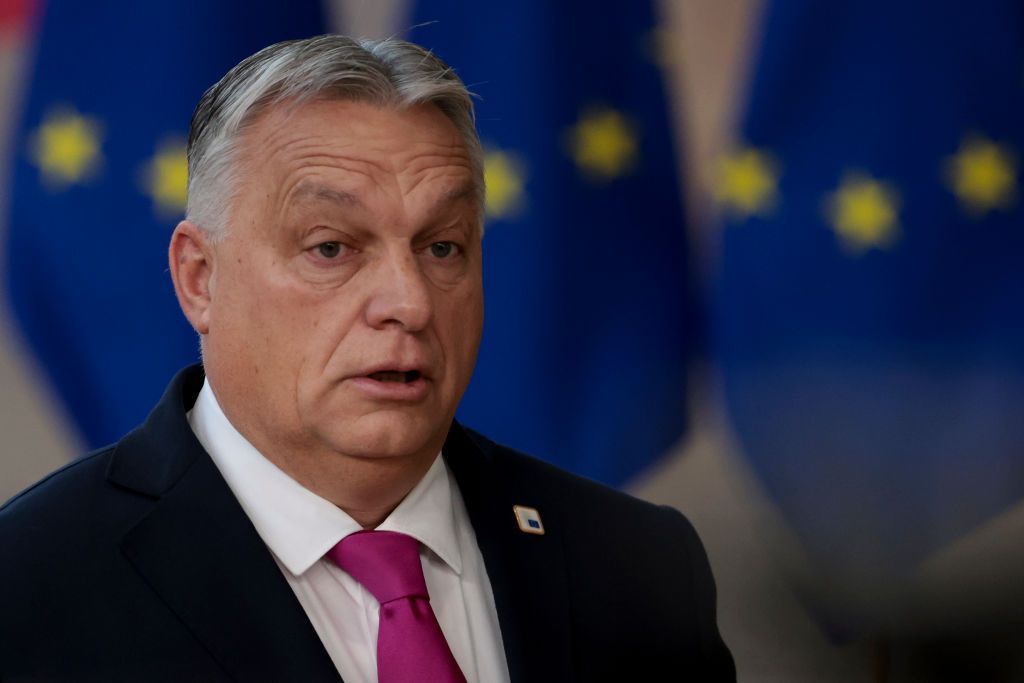Hungarian Prime Minister Viktor Orban expressed his country’s intention to “redefine” its position within NATO, potentially allowing it to refrain from supporting Ukraine. Hungary has consistently opposed Ukraine’s accession to NATO and the EU, as well as sanctions on Russia, and has maintained close relations with Moscow. Orban stated that Hungary is committed to protecting NATO members, but has concerns about funding and supplying weapons to Ukraine, as it is not a member of the alliance. He also highlighted the strength of NATO compared to Russia, suggesting that fears of a Russian attack on the alliance are unfounded.
Orban emphasized the need to strengthen Hungary’s army, stating that weak military capabilities could lead to conflict. He dismissed the idea that Russia, unable to defeat Ukraine, would suddenly be capable of threatening the Western world. Despite NATO Secretary General Jens Stoltenberg’s proposal for a $100 billion fund to aid Ukraine, Hungary has refused to participate in the alliance’s long-term support plan for Ukraine. Foreign Minister Peter Szijjarto referred to the mission as “crazy,” indicating Hungary’s reluctance to be involved in providing weapons to Kyiv. Orban’s call for strengthening the Hungarian military reflects the country’s focus on national defense and autonomy.
President Volodymyr Zelensky of Ukraine recently held a detailed discussion with Prime Minister Orban, inviting him to participate in a peace summit. The conversation between the two leaders was described as focused, indicating a potential interest in collaborating on peace efforts. Despite Hungary’s opposition to NATO’s increased support for Ukraine, Zelensky’s outreach to Orban suggests a willingness to engage with neighboring countries to address the ongoing conflict. This dialogue between Ukraine and Hungary highlights the importance of diplomatic relations in fostering regional stability and peace.
Orban’s views on Hungary’s NATO membership and stance towards Ukraine reflect a complex balance of national interests and international alliances. While Hungary is committed to its role within NATO, Orban has expressed reservations about certain aspects of the alliance’s approach to supporting Ukraine. By seeking to redefine Hungary’s position within NATO, Orban is navigating a delicate diplomatic situation that involves balancing relations with Russia and Western allies. Hungary’s reluctance to fully engage in supporting Ukraine underscores the complexities of regional politics and the challenges of pursuing a foreign policy that aligns with national interests.
The Hungarian government’s position on Ukraine and NATO reflects a broader debate within the alliance about how to address the conflict in Eastern Europe. Orban’s statements highlight Hungary’s concerns about the implications of deeper involvement in the conflict and its impact on regional security. As the war in Ukraine continues to escalate, Hungary’s stance raises questions about the role of NATO in addressing crises beyond its borders. The ongoing dialogue between Hungary, Ukraine, and other NATO members underscores the need for diplomatic solutions to complex geopolitical challenges in the region.
In conclusion, Hungary’s efforts to redefine its position within NATO regarding support for Ukraine reflect a nuanced approach to navigating regional security challenges. Orban’s statements underscore Hungary’s commitment to protecting NATO members while also highlighting concerns about implications for national security. The dialogue between Ukraine and Hungary signals a willingness to engage in diplomatic efforts to address the conflict in Eastern Europe. As the situation continues to evolve, the role of NATO and the dynamics between member states will play a crucial role in shaping the future of the region and international security.


